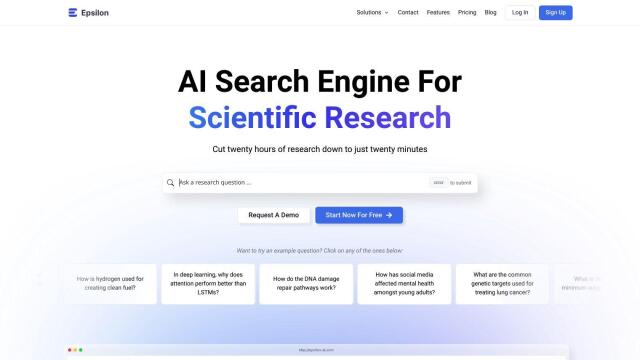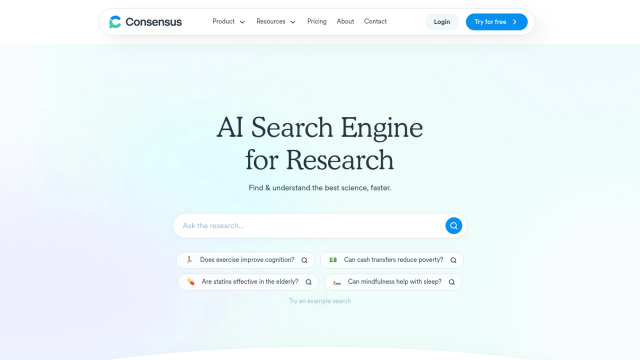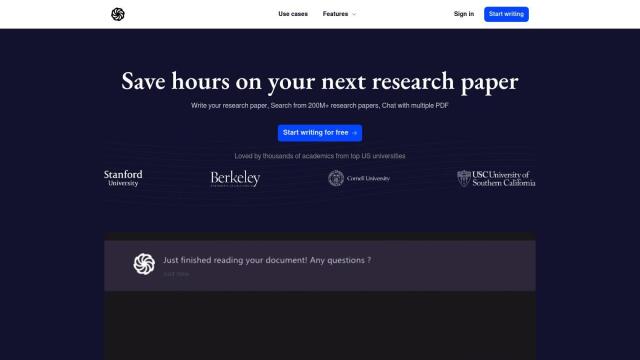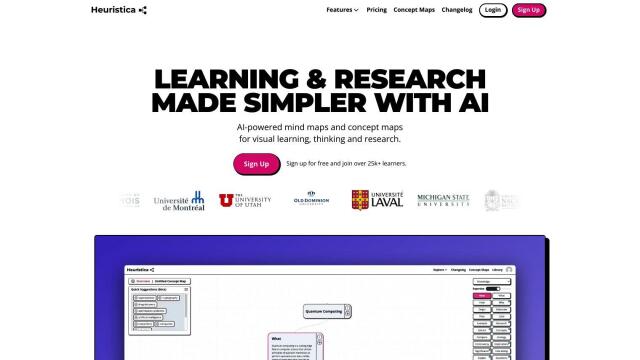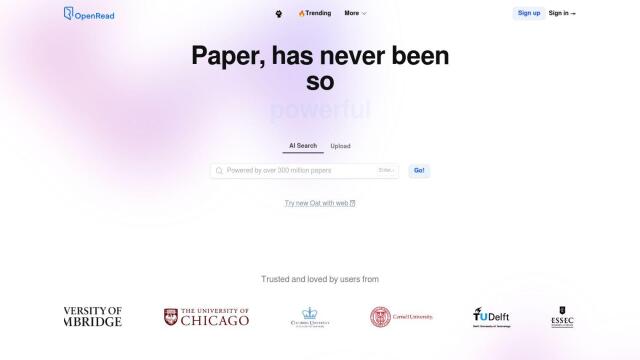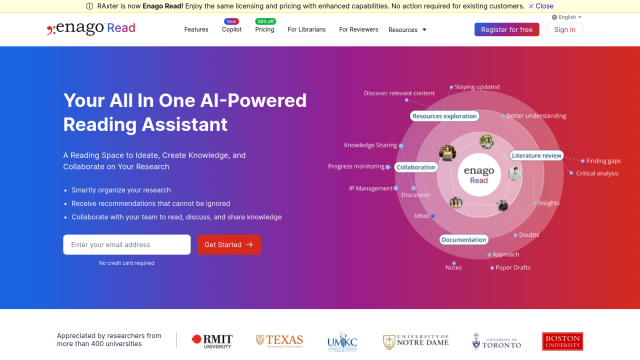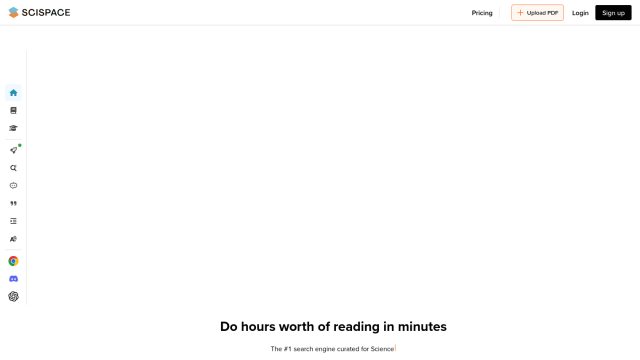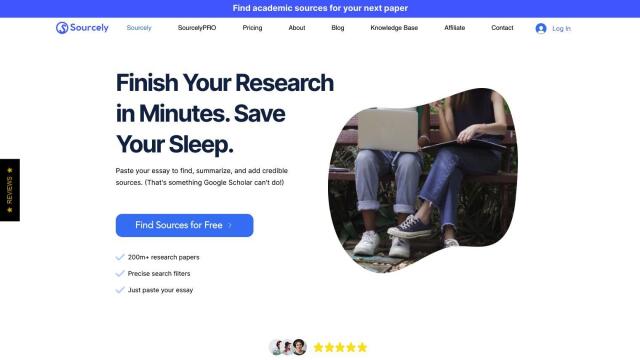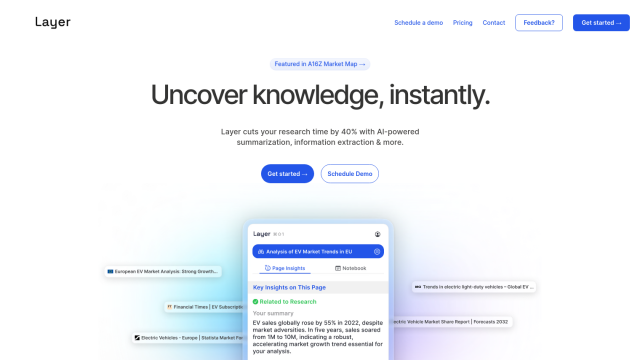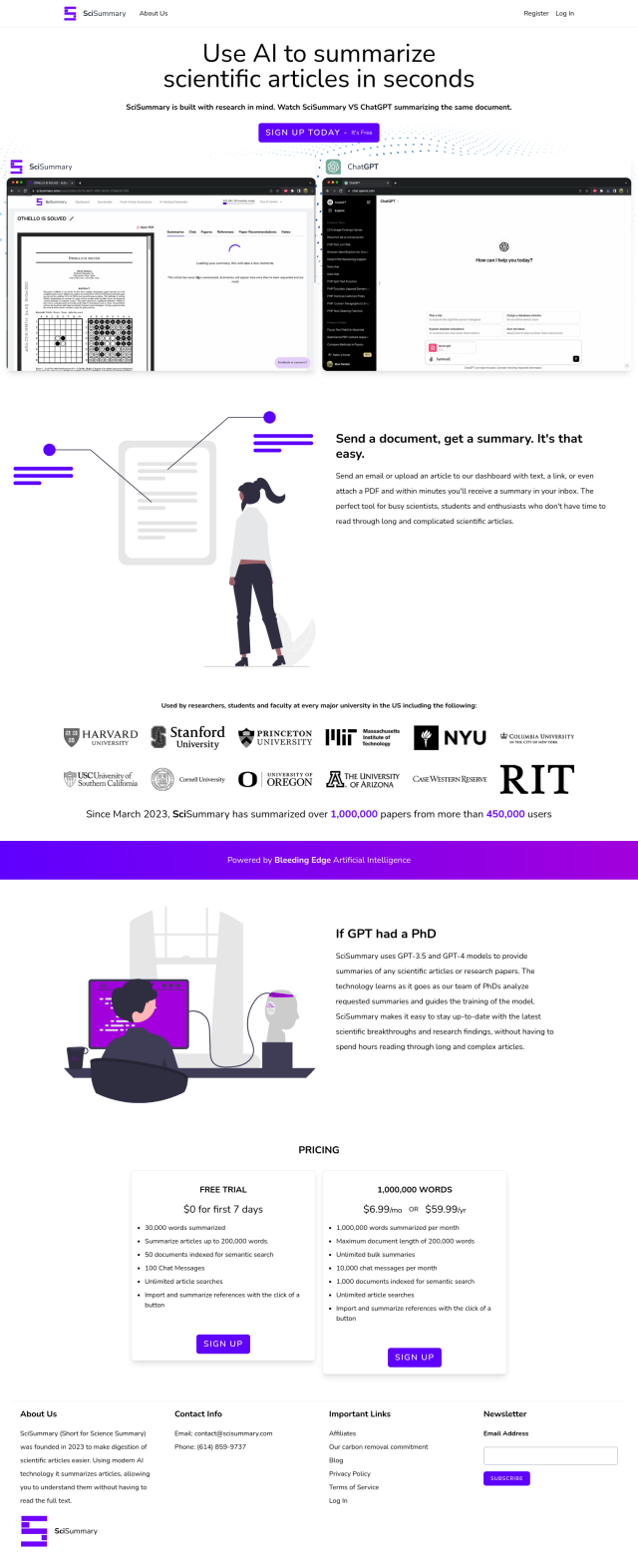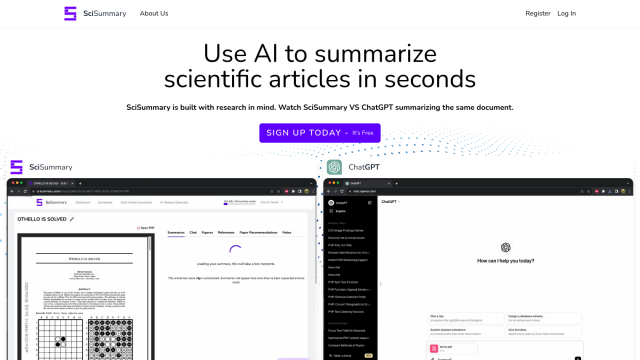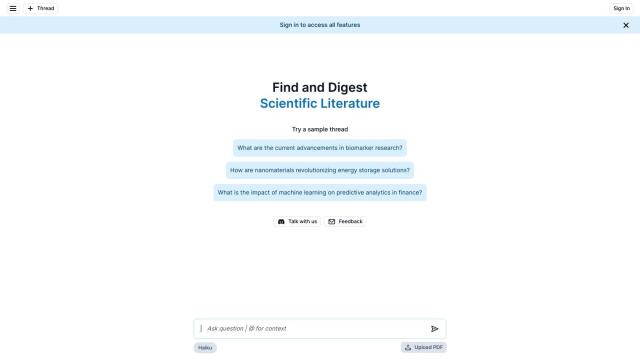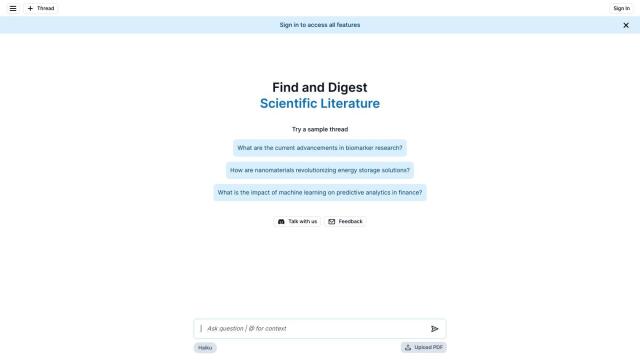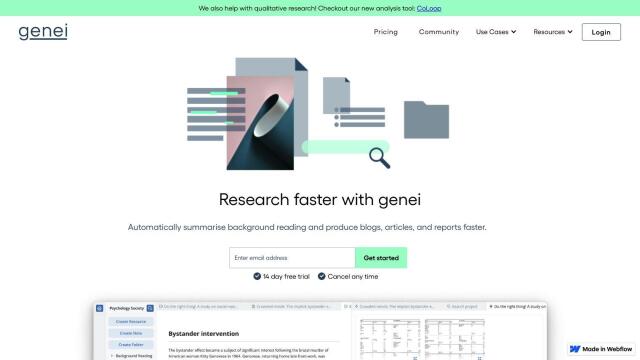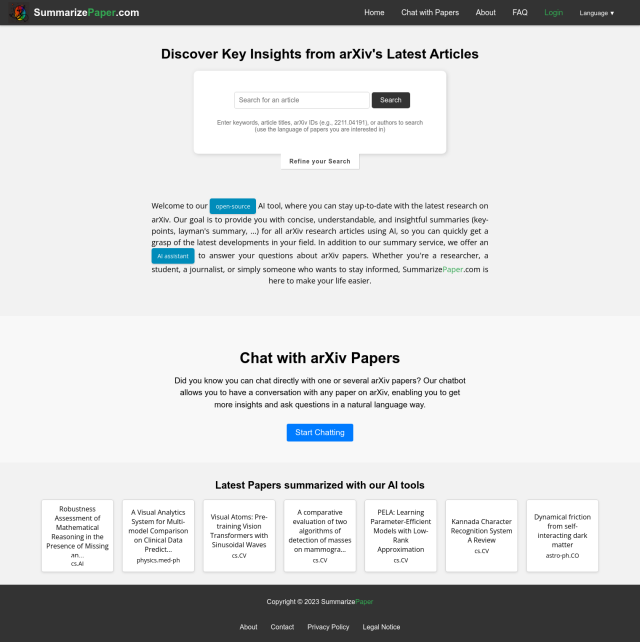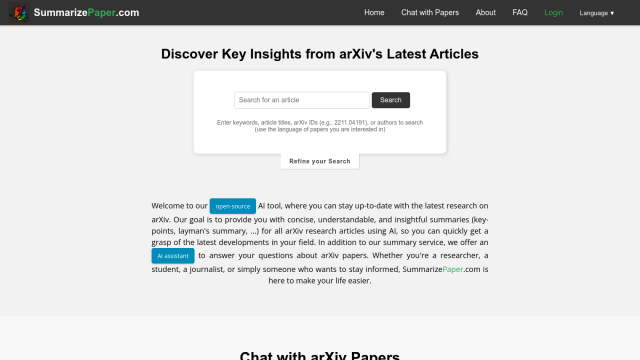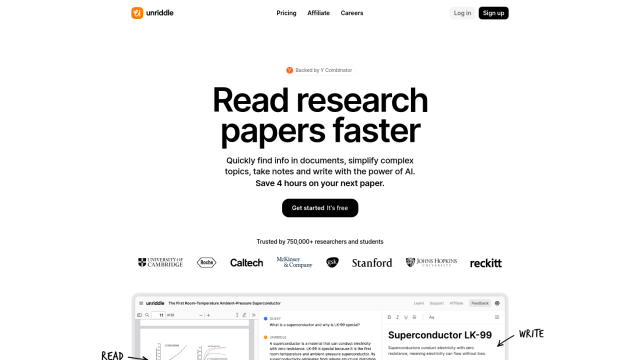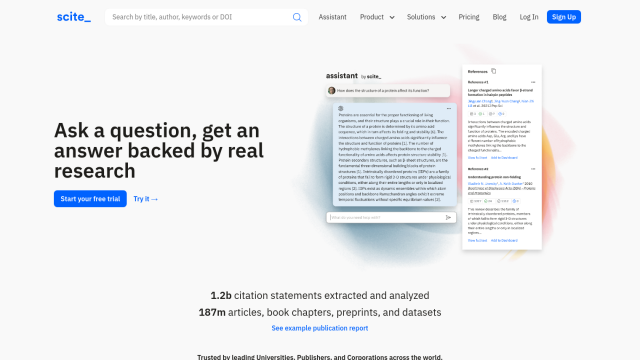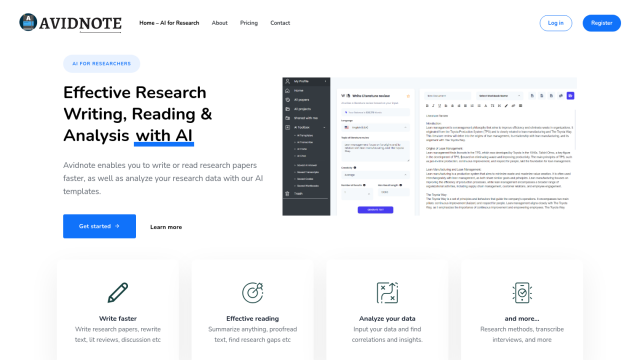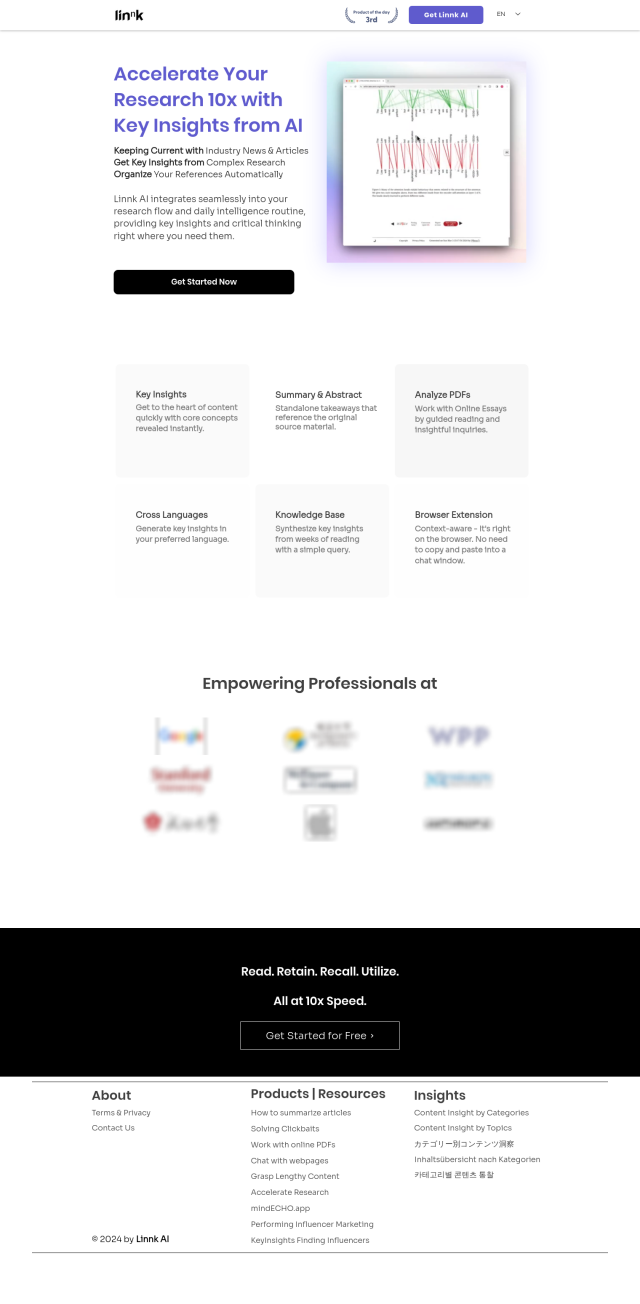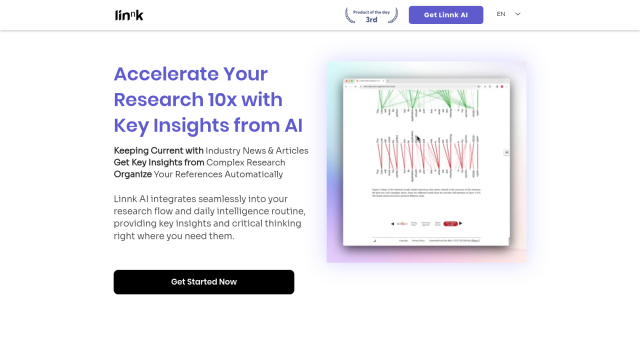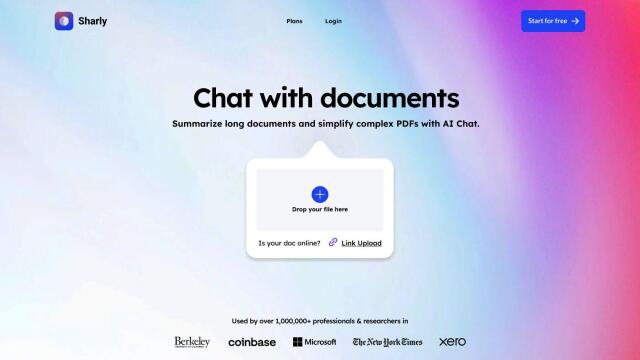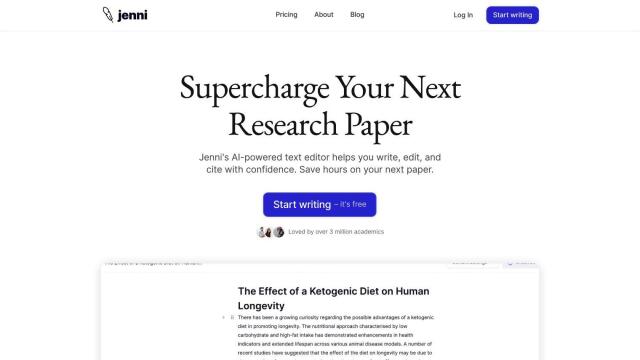Question: Can you suggest a tool that enables scientists to search for concepts and ideas in scientific literature, rather than just authors and papers?

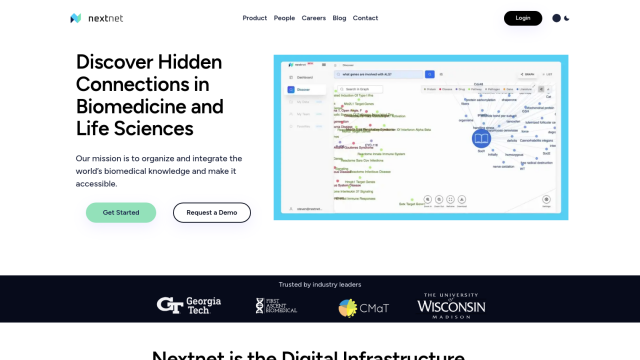
Nextnet
If you're looking for a tool to search for concepts and ideas in scientific literature, Nextnet is a great option. This cloud-based information retrieval system is geared for scientists and researchers in biomedicine and life sciences. You can use it to perform semantic searches with natural language or keywords, find concepts derived from scientific literature and molecular databases, and explore a large-scale semantic biomedical knowledge network generated by an AI ingestion engine. With features like relational search, conceptual search and a no-code user interface, Nextnet enables users to quickly find primary evidence and insights, speeding up discovery and R&D.


Elicit
Another option is Elicit, an AI research assistant designed to help you find, summarize and extract information from more than 125 million academic papers. It can be used to search for papers, identify themes and concepts, and even engage in a conversation mode where you can ask questions of the content of papers. Elicit is geared for empirical subjects like biomedicine and machine learning, and it has tools to accelerate literature reviews, automate systematic reviews and track new research.
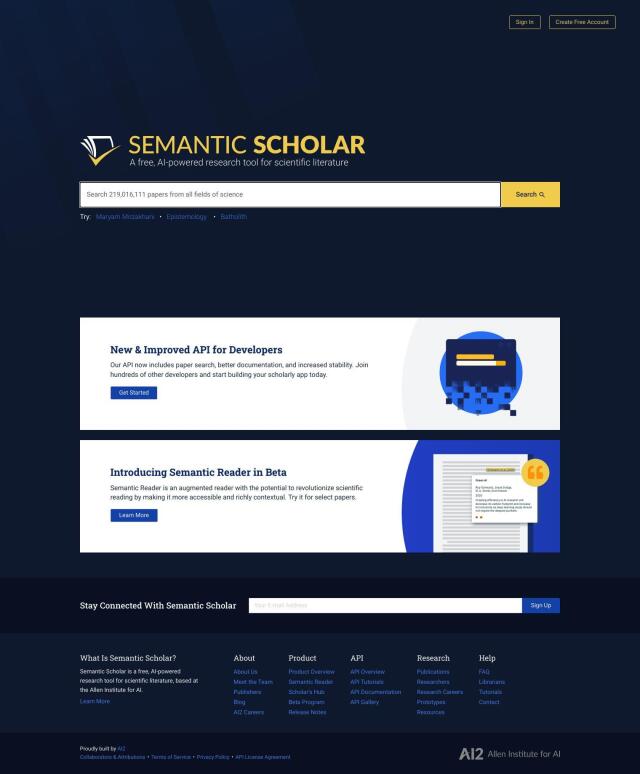
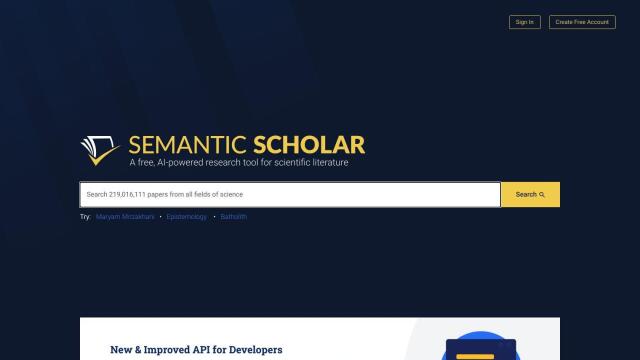
Semantic Scholar
If you want to search across multiple scientific fields, check out Semantic Scholar. This free AI-powered research service has a powerful search with filters for journals, conferences, authors, paper types and date ranges. It also offers brief summaries (TLDRs) to help you evaluate papers and tools to cite papers in different citation styles, organize papers into folders and share folders with collaborators. There are no pricing tiers or subscription fees, so Semantic Scholar is available to researchers and developers who want to be up to speed on the latest scientific research.

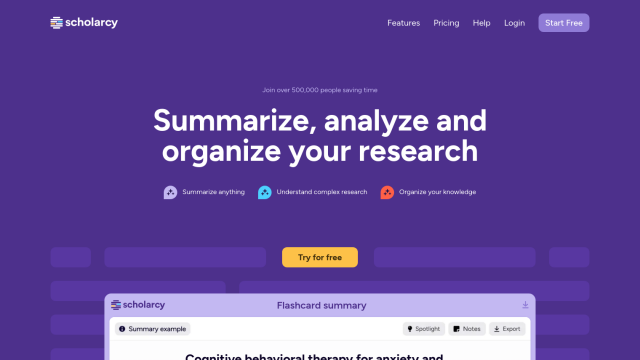
Scholarcy
Last, Scholarcy is an AI-powered summarization tool designed for academic papers. It can convert dense documents into interactive summary flashcards and offers tools for summarization, analysis, organization and synthesis. With options to customize summaries, take notes and generate bibliographies, Scholarcy can help students and researchers process complex information and concentrate on higher-level thinking. It offers both free and paid plans, so it's suitable for a range of needs.

